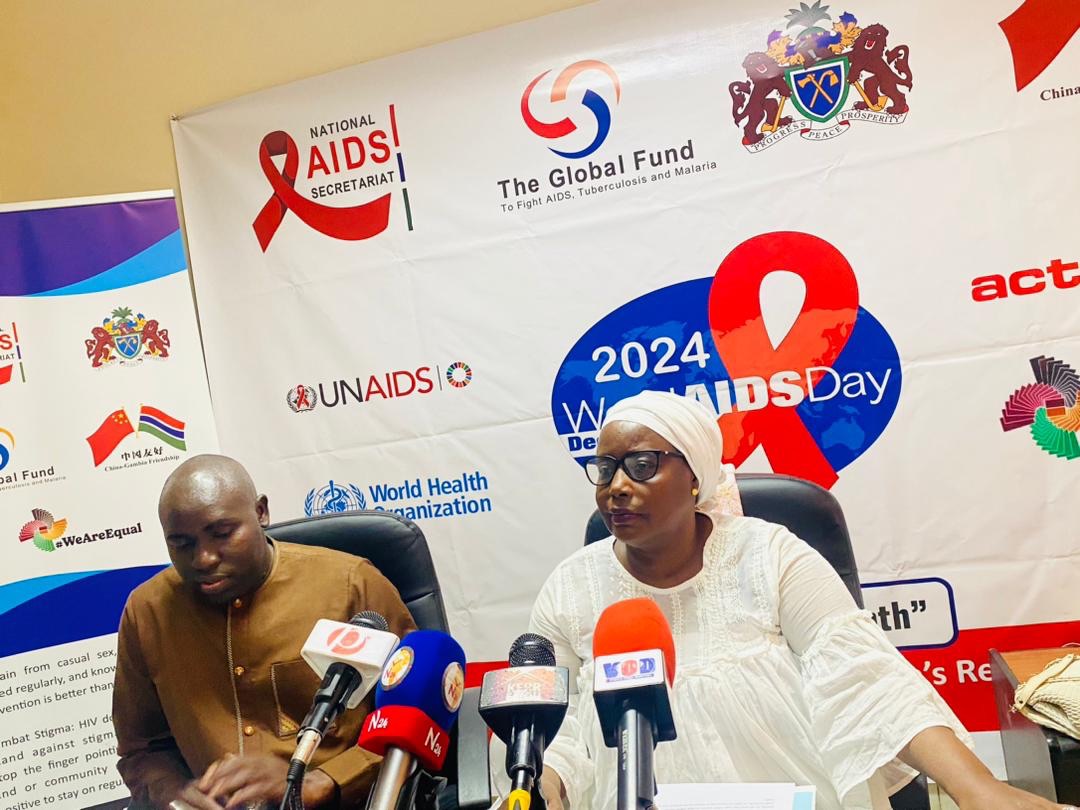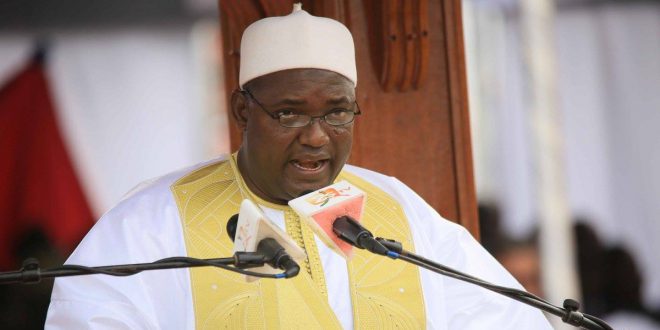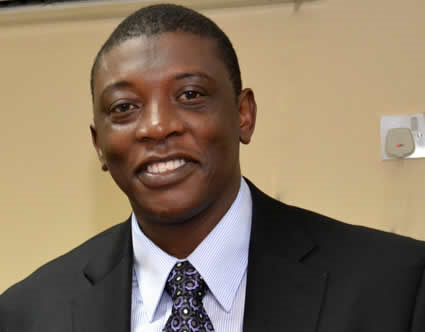By: Fatoumatta Krubally
The Ministry of Health, in collaboration with the National AIDS Secretariat and partners, has stressed the importance of taking the right path to end AIDS as a public health threat by 2030.
The Ministry of Health and National AIDS Secretariat briefed the press on Friday, marking World AIDS Day.
Mr. Alpha Khan, speaking on behalf of the Ministry of Health, emphasized the significance of World AIDS Day, commemorated every year on December 1st. This year’s theme, “Take the right path,” focuses on the progress” made in the HIV response and the need to protect human rights to achieve the goal of ending AIDS by 2030.
Khan highlighted the global progress in the fight against HIV but also pointed out the challenges that remain, particularly in protecting the rights of those affected by the virus.
He stated, “Ending AIDS requires that we reach and engage everyone who is living with, at risk for, or affected by HIV – especially including people who have been most excluded and marginalized.”
Pa Ousman Bah, the Director of the National AIDS Control Program, provided updates on the HIV situation in The Gambia.
He stated that reason while the country has made significant progress in increasing access to HIV services, there are still challenges in reaching certain populations.
Bah stressed the importance of implementing strategies like testing and treating all and differentiated service delivery to improve access to treatment and care for all PLHIVs.
Bah noted, “The Gambia is fully implementing the test and treat all strategy and the HIV Differentiated Services Delivery (DSD) in the current grant to increase access to ARVs.”
Sierra Horeja Ndow, the UNAIDS Country Director, said it is important to uphold human rights in the fight against AIDS and the need to protect the rights of everyone living with it and at risk of HIV to achieve the goal of ending AIDS by 2030.
Ndow emphasized the disproportionate impact of HIV on women and girls, calling for action to tackle discrimination and violence against them.
“Human rights violations are still preventing the world from ending AIDS. When girls are denied education; when there is impunity for gender-based violence; when people can be arrested for who they are; and when a visit to health services is dangerous for people because of the community they are from, the result is that people are blocked from being able to access HIV services that are essential to save their lives and to end the AIDS pandemic,” she stated.





